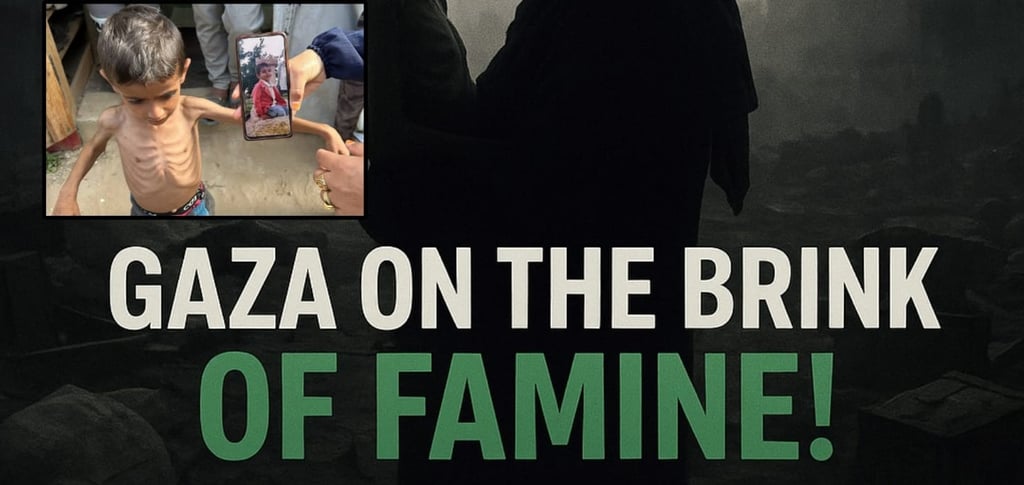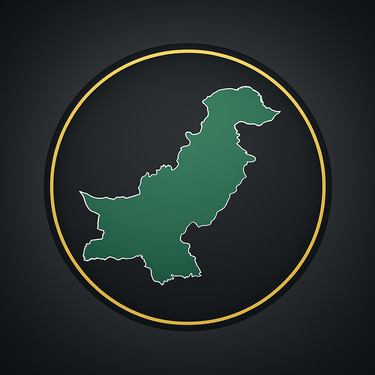Starvation in Gaza: Children Face Famine as World Fails to Act
Gaza faces mass starvation as Israel’s siege blocks food and aid. Thousands of children suffer, raising global outrage over war crimes and genocide.
INTERNATIONALHEALTH
8/18/20253 min read


Starvation in Gaza: A Humanitarian Crisis and a Global Shame
Starvation is one of the slowest and most painful ways for a human being to die. When denied food, the body first consumes stored sugar in the liver, then begins breaking down muscle and fat to keep the brain and vital organs alive. As reserves vanish, the immune system collapses, the heart weakens, and the skin tightens against the bones. Vision fades, breathing slows, organs fail one by one — until the body finally shuts down.
This is not a medical description from a textbook; it is the grim reality for thousands of Palestinians in Gaza today. The world has seen the haunting images of malnourished children and infants wasting away in their mothers’ arms. Now, as Israel escalates its offensive on Gaza City, the dual threat of bombs and starvation puts even more lives in peril.
From Hunger to Famine in Gaza
“This is not just a hunger crisis anymore. This is starvation,” warned Ramesh Rajasingham, a senior UN humanitarian coordinator, in a UN Security Council briefing on August 10. Famine expert Alex de Waal has explained that many Gazan children are now so severely malnourished that even food would no longer help them — their bodies cannot digest it.
Human rights groups, international organizations, and even prominent Israelis have acknowledged that Israel’s current strategy amounts to the use of starvation as a weapon of war — a direct violation of international law. Former Israeli Prime Minister Ehud Olmert himself has called Israel’s actions “war crimes,” while leading Israeli NGOs say the devastation in Gaza fits the definition of genocide.
Siege and Collective Punishment
The policy of starvation did not happen by accident. On October 9, 2023 — two days after Hamas carried out attacks that killed over 1,200 Israelis and kidnapped more than 200 people — then-Defense Minister Yoav Gallant announced a “complete siege” of Gaza: “No electricity, no food, no fuel. Everything is closed.” By labeling Palestinians as “human animals,” Gallant stripped away the distinction between civilians and fighters — violating one of the core rules of humanitarian law.
For 70 days, Gaza was cut off from all essential supplies. A slight easing came in early 2024, but even then, humanitarian agencies warned that famine was spreading. By April, USAID chief Samantha Power was warning of mass starvation, and by May, World Food Programme director Cindy McCain declared a “full-blown famine” in northern Gaza.
Israel’s Legal Obligations Under International Law
As the occupying power, Israel is legally required to ensure access to food, water, and medicine for Gaza’s civilians. If resources are unavailable locally, they must be provided externally — even from Israel itself. Instead, aid agencies and governments have faced obstruction. Despite repeated pleas to allow humanitarian deliveries, Israel has consistently blocked or severely limited them.
In January 2024, the International Court of Justice (ICJ) issued binding orders for Israel to enable urgent humanitarian assistance. In March, the ICJ reaffirmed that ruling, demanding full cooperation with the United Nations. Yet, as soon as a fragile ceasefire collapsed, aid distribution networks collapsed with it.
Israel then replaced UN-led efforts with its own Gaza Humanitarian Foundation. But according to famine experts, the plan was fatally flawed — the food packages supplied were insufficient to prevent mass starvation. Worse, more than 1,400 Palestinians have been killed by Israeli fire while trying to access food distribution sites.
Starvation as a Weapon of War
Israeli officials have openly admitted that restrictions on aid are being used to pressure Hamas. Finance Minister Bezalel Smotrich even claimed in August 2024 that starving two million civilians “might be justified and moral.” National Security Minister Itamar Ben-Gvir went as far as urging that aid depots should be bombed. Such statements reveal intent — transforming mass starvation from a war crime into genocide.
Governments worldwide had early warning of this catastrophe, yet many chose silence. They justified the blockade by claiming aid could reach Hamas, even though Israel itself has since admitted it has no evidence. At the same time, they shipped more weapons to Israel than they sent food to Gaza — complicit in prolonging the suffering.
The Global Responsibility
The world cannot claim ignorance. Images of skeletal children in Gaza now join the tragic archives of Rwanda, Bosnia, and other moments when humanity failed to act. International law is clear: starvation of civilians is a war crime. When it is deliberate and systematic, it is genocide.
Today, Palestinians are being starved before the eyes of the international community. If global leaders do not act to stop it, history will remember this as one of our darkest hours — a moment of collective shame.
We still have a chance to prevent more deaths, but the window is closing. The question is whether the world will rise to its duty, or once again look away.
Explore
Your lens into Pakistan's vibrant stories.
Connect
Discover
+92-300-0440097
© 2025. All rights reserved.
